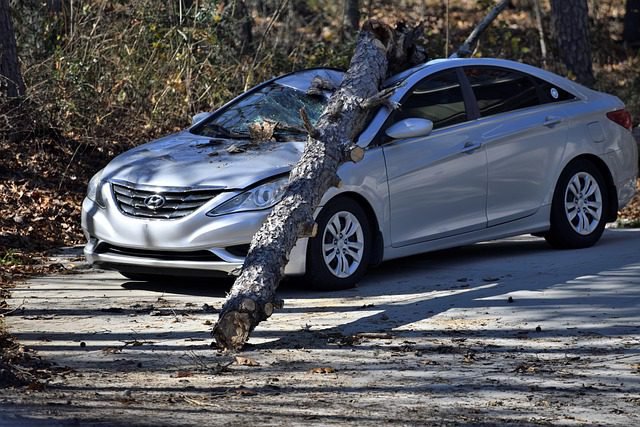Last Updated on February 12, 2025 by Bisma Sehar
In 2019, a car crash that only caused property damage had an average economic cost of $4,600. For accidents with possible injuries, the mean costs went up five times to a staggering $23,400. Incidents with fatalities cost the most, with the average reaching more than $1.7 million.
Without vehicle insurance, drivers who cause such losses are liable to pay for all those. As such, vehicle ownership usually goes hand in hand with certain types of car insurance. Your state may not even let you register your vehicle if you don’t carry these coverages.
In this guide, we’ll cover the essential facts you need to know about auto insurance and its types. So, read on, as this can help you make sure you’re not breaching your state’s car insurance laws.
Table of Contents
Proof of Financial Responsibility 101
In most US states, you can only register a vehicle if you show proof of financial responsibility. The easiest way to obtain this proof is by purchasing an auto insurance policy. However, some states offer motorists alternatives to car insurance coverage.
For example, you can choose not to get auto insurance in Texas, provided you file a bond with the state’s DOT. Another option is to go to the Texas comptroller to deposit $55,000 in full and in cash. You can also go to the local county judge and deposit $55,000 in cash or a cashier’s check.
Another example is New Hampshire, where car insurance isn’t mandatory at all. However, you’d need to pay the damages or losses of a person you might injure if you cause an accident. Failure to do so can result in the suspension of your driving privileges.
Virginia also offers an alternative in the form of an uninsured motor vehicle (UMV) fee. Drivers can pay a yearly $500 UMV fee instead of purchasing a car insurance policy. If they cause an accident, though, they still need to pay for the damages and losses they cause to others.
Considering that not a lot of people have disposable $55,000, car insurance is more practical. The same applies in NH and VA that don’t require coverage, as drivers who cause an accident will still be liable.
Types of Car Insurance Most States Require
Let’s say you go with car insurance as proof of your financial responsibility. In this case, you need to meet your state’s minimum required coverage types. In some states, there are only two, while in others, there are three or even four mandatory coverages.
Bodily Injury Liability
Bodily injury liability is a requirement in all but Florida. This coverage is also mandatory if you choose to buy auto insurance in NH or VA.
This part of your policy helps cover the costs of treating another person you injure in a crash. These include the other injured person’s medical bills and even loss of income. It will only pay up to your purchased coverage limit, though.
States have varying minimum limits, but most require at least $25,000 per person. On the other hand, California has a lower mandate of only $15,000 per person. In Alaska, though, the minimum is a whopping $50,000 per person.
Property Damage Liability
Property damage liability coverage is mandatory in all states. It helps pay for any damage you cause to another person’s property, including their car. This part of your policy will cover the costs to repair their damaged belongings.
Uninsured/Underinsured Motorist Coverage
Up to 32 million US motorists drive without insurance. So, it’s no wonder 20 states and DC require uninsured/underinsured motorist coverage. It protects you and your car if you get into a crash with an uninsured or underinsured driver.
In states that require this coverage, the minimum is usually $25,000 per person. These include Connecticut, Illinois, Kansas, Minnesota, and Missouri, to name a few. In Maine, though, the minimum coverage limit per person is $50,000.
Personal Injury Protection (PIP)
A total of 18 states, including Florida, Hawaii, and Kansas, require PIP. PIP helps cover the insured person’s medical costs, regardless of who caused the crash. The coverage applies to ambulance fees, emergency room bills, prescriptions, and lost wages.
Medical Payments (Med Pay) Coverage
Med Pay is similar to PIP, except it only covers costs related to medical bills. Unlike PIP, it doesn’t cover lost wages. However, it covers not only the insured but also the passengers of the policy owner.
Maine and New Hampshire are the two states that require Med Pay. In ME, the minimum is $2,000, while in NH, it’s only $1,000.
In Pennsylvania, Med Pay goes by the name Medical Benefits. It works pretty much the same way as Med Pay, but the minimum required is $5,000.
Safety Responsibility (SR22) Insurance
An SR22 is a certificate of insurance serving as proof of financial responsibility. It’s usually a requirement for motorists deemed high-risk by the DMV.
Some examples of states with SR22 requirements are Minnesota, New York, and New Mexico. In addition, some drivers in Illinois may also need SR22, according to Insured ASAP.
Optional Types of Auto Insurance
These are the types of car insurance coverage that states don’t mandate but can still be helpful.
For instance, collision insurance helps cover damages to your car after a crash. It can help pay for the costs to repair or replace your vehicle.
Another example is a comprehensive auto policy, which covers non-collision damages. These include incidents like accidents with animals, some weather events, and vandalism.
Never Drive Without Car Insurance
Please keep in mind that more than four million people in the US get severely injured in road crashes each year. That proves how prevalent traffic accidents are in the nation. So, it should also be enough reason to carry the mandatory types of car insurance at all times.
Better yet, invest in a robust policy that includes collision and comprehensive coverage.
Interested in other informative guides like this? Please feel free to check out and read our most recent news and blog posts then!
















